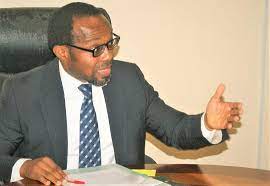By Hassan Zaggi
The Director General of the National Institute of the Pharmaceutical Research and Development (NIPRD), Dr. Obi Adigwe, has advocated for what he described as robust and comprehensive health communication strategy to ensure maximum impact of science, technology and innovative activities on healthcare sector in Nigeria.
He made his position known at a 2-day strategic and advocacy retreat on COVID-19 and health security organised by the Africa Health Budget Network (AHBN), in Abuja.
The retreat was a follow-up to the National COVID-19 Summit which was organised by the Presidential Steering Committee (PSC) on COVID-19 in Abuja in December last year.
Dr. Adigwe revealed that there is the need for comprehensive health communication strategy to be able to use evidence-based research to improve healthcare delivery in the country.
“In order to ensure that interventions that emerged from science, technology and innovative activities impact on healthcare, there is the need to have a robust and comprehensive health communication strategy.
“This particular retreat is the first in that direction and Dr. Aminu Magashi has started very well by bringing the media to the retreat.
“What that means is that there is an embedment of a robust and comprehensive research strategy for interventions that emerged from this engagement. It is a step in the right direction and I what you to follow up on that,” he said.
Dr. Adigwe, therefore, encouraged health advocates and Non Governmental Organisations (NGOs) to continue to engage in intense advocacy for policy makers and politicians at all levels to ensure that evidence –based interventions get to the policy making framework.
According to him: “As scientists, we always believe that once we come up with findings and publish them that politicians and policy makers will pick up on them and use the evidence in policy making. In our context here in Africa, that is often not the case.
“There is strong need for informal engagement and advocacy to ensure these evidence –based interventions actually get to the policy making framework.
“When we finish engaging with the world class scientists we have here in the room, there is need for the policy makers in the legislature, executive to also understand what we think is right on this evidence we have brought forward.”
The NIPRD Director General, however, charged the participants at the retreat to focus on achieving results from their findings despite the resistance they may encounter when making efforts to get them implemented.
“One must not under estimate the amount of resistance that you will face in implementing these interventions. I can tell you that it is not just in Nigeria, it is in every system the world over.
“We all know that the findings here are the right things to do, hut if you think that you are going to present it and everybody in the related ministries, the national assembly and presidency will embrace you and congratulate you for job well done, you are in for a shock.
“You must anticipate the resistance that will come with the change that your evidence will bring. It is only when you anticipate this resistance and you prepare and make up your mind and have fortitude to fight because you are fighting for the lives of the people of the country, if you make up your mind to do that, that is when you have a chance to succeed.,” he advised.
In a presentation titled: ‘Road map for vaccine Development in Nigeria and Potential Areas where Advocacy is needed,’ Adigwe identified challenges for local vaccine production and development to include absence of lack of a clear vaccine agenda; inadequate political will and support to drive continues Research and Development (R&D) and production; poor R&D prioritization and coordination across efforts; limited access to finance; weak infrastructure; low technological capacity and weak regulatory environment.
Earlier in his welcome address, the Coordinator AHBN, Dr. Aminu Magashi, said that retreat was aimed at discussing some of the key resolutions and recommendations of the National COVID-19 Summit in order to identify key advocacy areas.
“During this 2-day retreat, participants will review key recommendations from many of the papers presented at The National COVID-19 Summit.
”They will also brainstorm on advocacy priorities needed to address some of the gaps at national and sub-national levels to galvanise actions in the areas of accountability strengthening, equitable recovery and building back better.
“Others are sustainable financing to address COVID-19 and health security, ramping up vaccination, testing and treatment, local vaccine production, border health/security to mention but few,” he said.



